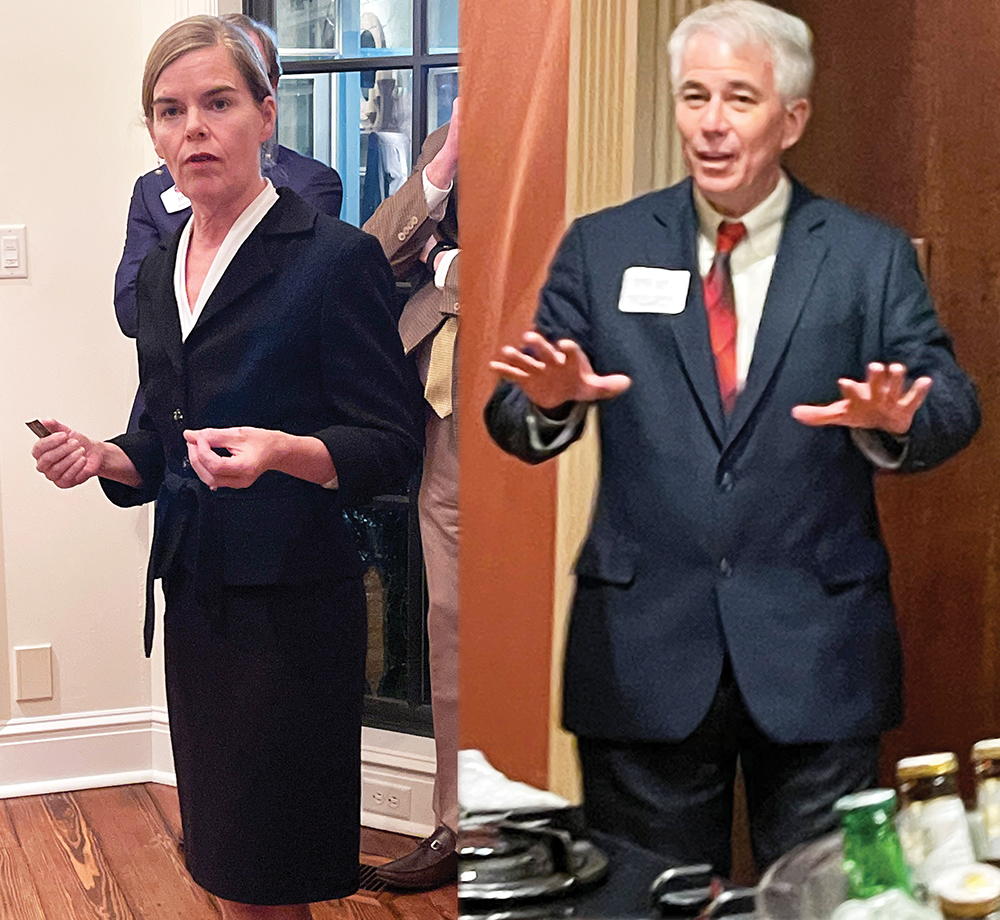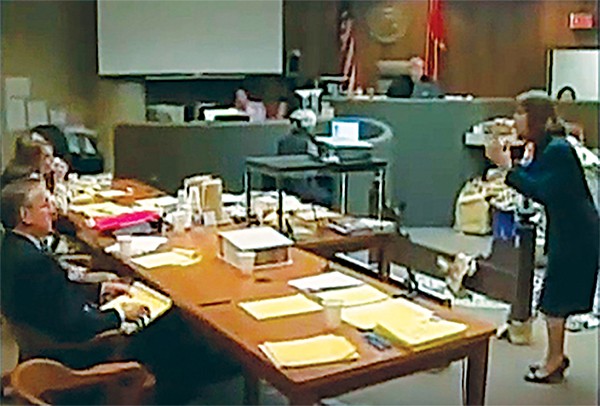In these still early days of the 2022 election field, one political race above all is drawing the most attention and seems to be getting fully underway. This is the contest between Republican incumbent District Attorney General Amy Weirich and her most likely Democratic opponent, University of Memphis law professor and former County Commissioner Steve Mulroy.
Both Mulroy and Weirich are on the campaign trail, which at this stage of the game means they are holding fundraisers that function simultaneously as opportunities to get their message out. Mulroy has been getting in the first licks, never failing to call attention to Weirich’s periodic sanctions for judicial misconduct by the Tennessee Supreme Court, by the Sixth Circuit Court of Appeals, and by the ethics panel of the Tennessee bar.
Weirich does not respond to these charges, though her supporters will cite them as proof of her zeal in pursuing crime and of a muscular approach that might sometimes cross over a line, but always in the interests of the victims of crime. “I’m tough and I’m fair,” she said Monday night at a well-attended fundraiser at the East Memphis home of GOP County Commissioner Brandon Morrison and her husband Joe. “And I’m never gonna apologize for being tough on crime. And if you want a D.A. that’s not going to fight for victims, that ain’t me. I’ll tell you that right here and right now.”
Mulroy sees things differently. At a pair of fundraisers he held this past week, at the home of Shawn and Shawna Lynch and the Donati Law Firm, he scourged Weirich for what he sees as her undue emphasis on locking offenders up as hype arrest statistics and her failure, as he said in his announcement remarks, to pursue “a conviction review unit like one now operating in Davidson County, an emphasis on justice rather than simply winning verdicts, sequestration of juveniles from adult offenders, and reform of what he called ‘bail inflation.’”
Without naming Mulroy, Weirich singled out this last point on Monday night: “I am not your D.A. if you want someone to commit to letting everyone out without bond. That is not the solution. We saw a little bit of that during the pandemic. And what happened to our crime rate is, it went up.”
Of course, Mulroy maintains, as he did at the Lynch fundraiser, that the Shelby County crime rate, violent crime in particular, “has gone up consistently every year under Weirich’s administration after having slowed down just before she took office.”
Another point of contention between them concerns what Weirich expresses this way: “Much of what frustrates the community right now and has for many years are the laws and the way the system is designed to let people out too soon, and add a disrespectful rate to the victims of those crimes. We need truth in sentencing.”
Mulroy opposes that notion and sees flexibility in incarceration procedures as ways both of applying pure and fair-minded justice and avoiding the indiscriminate long-term pile-up of bodies that, he says, turns prisons into crime schools.
All this being said, we aren’t yet in the general election. Weirich seems so far to be home free in the Republican primary, with no opponents. Mulroy, on the other hand, has two primary opponents, Linda Harris and Janika White, each seemingly well-credentialed enough to make a case for herself. They’re not crazy about Weirich’s record, either.

